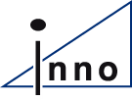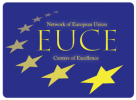The SAIS Center for Transatlantic Relations, located near Dupont Circle in Washington, DC, engages international scholars and students directly with government officials, journalists, business executives, and other opinion leaders from both sides of the Atlantic on issues facing Europe and North America. The goal of the Center is to strengthen and reorient transatlantic relations to the dynamics of the globalizing world. Center activities include seminars and lectures; media programs and web-based activities; research projects and policy study groups. The Center is an integral part of the Johns Hopkins University's Paul H. Nitze School of Advanced International Studies (SAIS), one of America's leading graduate schools devoted to the study of international relations.
The Center has been recognized by the European Commission as one of a select number of EU Centers of Excellence in the United States. It serves as the coordinating office of the American Consortium on EU Studies (ACES), a partnership among five national/capital area universities- American University, George Mason University, George Washington University, Georgetown University and The Johns Hopkins University-- to improve understanding of the European Union and US-EU relations throughout the Washington-Northern Virginia-Baltimore region.
The Director of the Transatlantic Center, SAIS professor Daniel Hamilton, also serves as ACES Executive Director. Dr. Hamilton has been integrally involved in transatlantic relations on both sides of the Atlantic as a scholar and educator, government official, think tank executive, media and business consultant.
The Center helped to launch the Congressional Caucus on the European Union, which now counts 32 Members of Congress. The Center offers seminars, briefings and other support to the Caucus, and to the Congressional Staff Roundtable on the European Union.
The Center also leads the international policy work of the Johns Hopkins-led National Center for the Study of Preparedness and Catastrophic Event Response (PACER).
A New Perspective
Conventional approaches to transatlantic ties tend to overlook and undervalue important aspects of the relationship. During the 20th century, the primary focus of transatlantic relations was the security and stability of Europe itself. This remains important. But in the 21st century, the most critical challenges—and greatest opportunities—facing transatlantic relations emanate from beyond the European continent.
The greatest security threats to the U.S. and Europe today stem from problems that defy borders: terrorism and the weapons of mass destruction; environmental scarcities and pandemics. They stem from challenges that have been marginal but contentious: “out-of-area” peacekeeping; post-conflict reconstruction and rehabilitation; rogue states, failed states and nations hijacked by groups or networks. And they come from places far beyond the European continent.
Are Europeans and Americans prepared to address the challenges of a globalizing world? Are they prepared to do it together? Through its various activities, the Center seeks to address these challenges.

















